Sinds de populariteit van de AirTag en andere soortgelijke Bluetooth-trackers, zijn er ook steeds vaker berichten over ongewenste tracking. Iemand verstopt bijvoorbeeld een Bluetooth-tracker in een auto of tas, om zo de locatie van die persoon te volgen. Hoewel Apple met de AirTag allerlei maatregelen genomen heeft, zijn er veel meer soortgelijke apparaatjes die misbruikt worden. Om dit tegen te gaan, gaan Apple en Google nu samenwerken. Er wordt gewerkt aan een industriestandaard, die door alle fabrikanten gebruikt kan worden om tracking tegen te gaan.
Apple en Google werken aan industriestandaard voor ongewenste tracking
Er is een specificatie uitgebracht, waarin Bluetooth-trackers geschikt zijn voor een detecteerfunctie in iOS en Android. Fabrikanten als Samsung, tile, Chipolo en eufy hebben al toegezegd achter deze nieuwe standaard te staan. Hierdoor kun je bijvoorbeeld op een iPhone of Android-toestel een melding krijgen zodra er een onbekende tracker bij je in de buurt is. Voor de AirTag krijg je al soortgelijke meldingen, maar dit komt op den duur dus ook voor andere trackers, zowel voor iOS als Android. Apple heeft voor Android eerder al de Tracker Detect-app uitgebracht, waarmee je handmatig kan zoeken naar Zoek mijn-trackers zoals de AirTag, maar dat lijkt nu slechts een tussenoplossing. De nieuwe standaard ingebouwde functie moet gebruikers proactief waarschuwen voor wat voor tracker in de buurt dan ook.
De nieuwe industriestandaard waar nu aan gewerkt wordt, borduurt dus voort op de anti-tracking maatregelen die ingebouwd zijn in de AirTag. Apple en Google vragen van fabrikanten als Tile en Samsung en andere organisaties op het gebied van privacy en veiligheid feedback op de nieuwe standaard, zodat dit in de ontwikkeling verder verbeterd kan worden.
De specificatie is ingediend bij de Internet Engineering Task Force. Deze organisatie houdt zich bezig met het ontwikkelen van allerlei standaarden op het gebied van internet. De komende drie maanden is het concept te bekijken door organisaties en andere geïnteresseerden. Daarna wordt de feedback door Apple en Google verwerkt, waarna eind 2023 de volledige specificaties openbaar gemaakt worden. Tot slot wordt de nieuwe standaard in een toekomstige versie van iOS en Android geimplementeerd. Het duur dus nog wel even voordat de nieuwe maatregelen actief zijn.
Niet eerste samenwerking voor industriestandaard
Apple en Google hebben eerder samengewerkt aan een nieuwe industriestandaard. In 2020 werkten de twee samen aan de COVID-tracking, zodat iOS- en Android-toestellen informatie met elkaar konden uitwisselen over een al dan niet besmet persoon. Deze standaard werd vervolgens gebruikt door talloze corona-apps, waaronder de Nederlandse Coronamelder.
Apple and Google lead initiative for an industry specification to address unwanted tracking
Companies welcome input from industry participants and advocacy groups on a draft specification to alert users in the event of suspected unwanted tracking
Location-tracking devices help users find personal items like their keys, purse, luggage, and more through crowdsourced finding networks. However, they can also be misused for unwanted tracking of individuals.
Today Apple and Google jointly submitted a proposed industry specification to help combat the misuse of Bluetooth location-tracking devices for unwanted tracking. The first-of-its-kind specification will allow Bluetooth location-tracking devices to be compatible with unauthorized tracking detection and alerts across iOS and Android platforms. Samsung, Tile, Chipolo, eufy Security, and Pebblebee have expressed support for the draft specification, which offers best practices and instructions for manufacturers, should they choose to build these capabilities into their products.
“Apple launched AirTag to give users the peace of mind knowing where to find their most important items,” said Ron Huang, Apple’s vice president of Sensing and Connectivity. “We built AirTag and the Find My network with a set of proactive features to discourage unwanted tracking — a first in the industry — and we continue to make improvements to help ensure the technology is being used as intended. This new industry specification builds upon the AirTag protections, and through collaboration with Google results in a critical step forward to help combat unwanted tracking across iOS and Android.”
“Bluetooth trackers have created tremendous user benefits, but they also bring the potential of unwanted tracking, which requires industrywide action to solve,” said Dave Burke, Google’s vice president of Engineering for Android. “Android has an unwavering commitment to protecting users, and will continue to develop strong safeguards and collaborate with the industry to help combat the misuse of Bluetooth tracking devices.”
In addition to incorporating feedback from device manufacturers, input from various safety and advocacy groups has been integrated into the development of the specification.
“The National Network to End Domestic Violence has been advocating for universal standards to protect survivors — and all people — from the misuse of Bluetooth tracking devices. This collaboration and the resulting standards are a significant step forward. NNEDV is encouraged by this progress,” said Erica Olsen, the National Network to End Domestic Violence’s senior director of its Safety Net Project. “These new standards will minimize opportunities for abuse of this technology and decrease the burden on survivors in detecting unwanted trackers. We are grateful for these efforts and look forward to continuing to work together to address unwanted tracking and misuse.”
“Today’s release of a draft specification is a welcome step to confront harmful misuses of Bluetooth location trackers,” said Alexandra Reeve Givens, the Center for Democracy & Technology’s president and CEO. “CDT continues to focus on ways to make these devices more detectable and reduce the likelihood that they will be used to track people. A key element to reducing misuse is a universal, OS-level solution that is able to detect trackers made by different companies on the variety of smartphones that people use every day. We commend Apple and Google for their partnership and dedication to developing a uniform solution to improve detectability. We look forward to the specification moving through the standardization process and to further engagement on ways to reduce the risk of Bluetooth location trackers being misused.”
The specification has been submitted as an Internet-Draft via the Internet Engineering Task Force (IETF), a leading standards development organization. Interested parties are invited and encouraged to review and comment over the next three months. Following the comment period, Apple and Google will partner to address feedback, and will release a production implementation of the specification for unwanted tracking alerts by the end of 2023 that will then be supported in future versions of iOS and Android.
Taalfout gezien of andere suggestie hoe we dit artikel kunnen verbeteren? Laat het ons weten!
Het laatste nieuws over Apple van iCulture
- Gerucht: 'Apple wil wereldwijde rechten van nieuw FIFA-clubtoernooi in 2025' (22-04)
- 'EU keurt Apple's plannen om iPhone NFC-chip open te stellen binnenkort goed' (20-04)
- Apple wilde 100.000 bruikbare iPhones vernietigen, maar dat liep anders (18-04)
- Eerste NES-emulator in de App Store verschenen (en alweer verwijderd door ontwikkelaar) (17-04)
- Apple waarschuwt gebruikers in 92 landen voor spyware (11-04)
AirTag
De AirTag is Apple's Bluetooth-tracker voor het terugvinden van zoekgeraakte voorwerpen. De AirTag werkt samen met het Zoek mijn-netwerk van Apple om je voorwerpen terug te vinden, ook als je zelf buiten bereik bent. Je kunt tot op de centimeter de locatie bepalen, dankzij Ultra-Wideband. Lees alles over AirTag kopen en accessoires voor de AirTag. Ook zijn er diverse AirTag-alternatieven voor het Zoek mijn-netwerk.
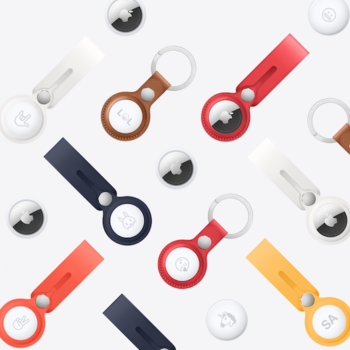
- Alles over de AirTag
- AirTag kopen
- AirTag review
- De beste AirTag-accessoires
- Zoek mijn Objecten: voorwerpen vinden met AirTag
- Toepassingen voor de AirTag
- AirTag in je koffer gebruiken
- De beste AirTag-tips
- AirTag vs. Tile
- AirTag gevonden? Dit kun je doen
- AirTag delen met je partner en meer
- Zo voorkomt Apple stalking met AirTags
- Is de AirTag waterdicht?
- Onbekende AirTag beweegt met je mee?
- AirTag batterij vervangen
- AirTag firmware-updates installeren
- AirTag ressetten
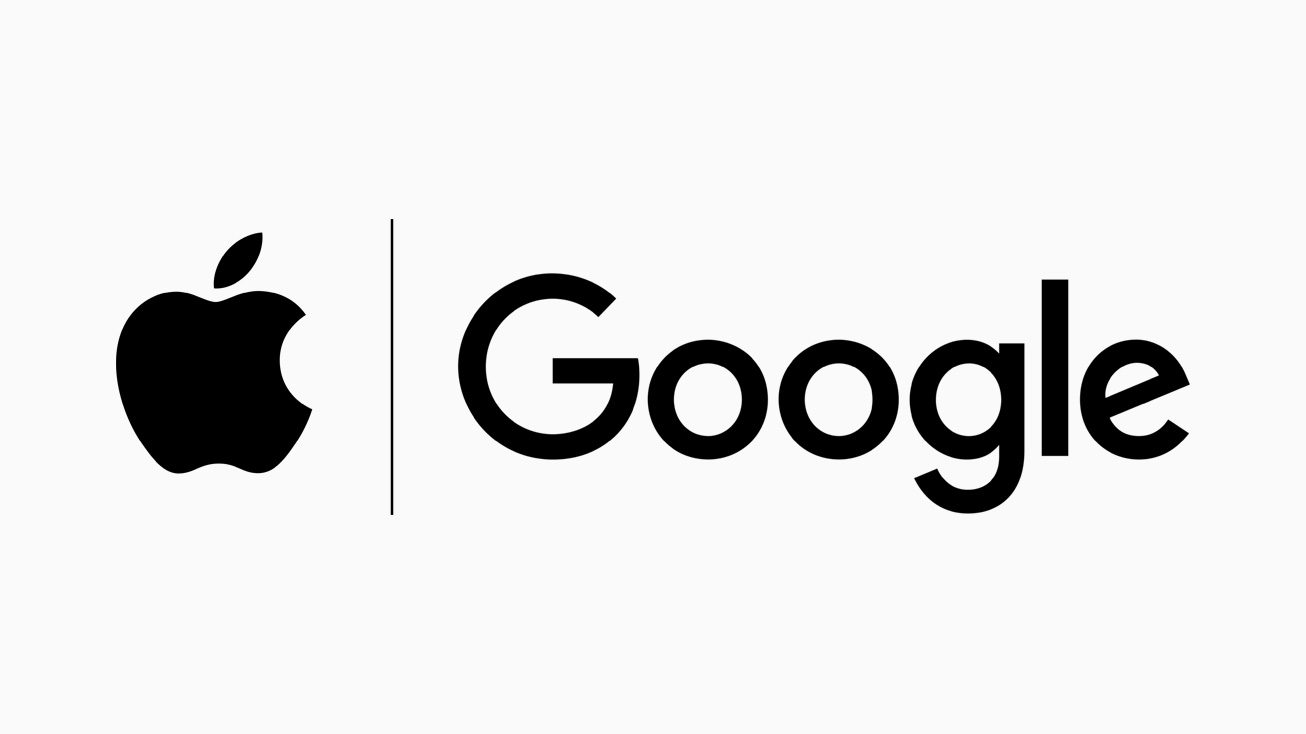

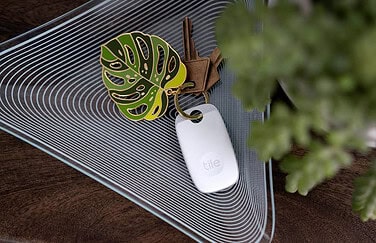
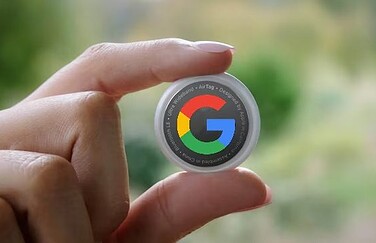
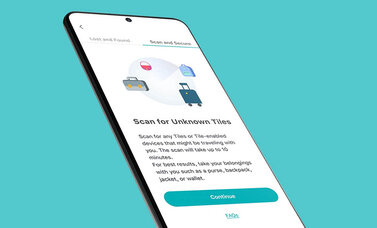
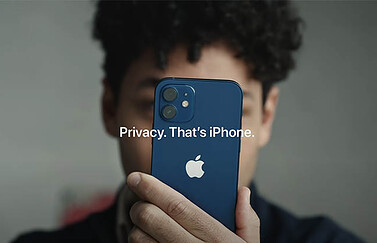
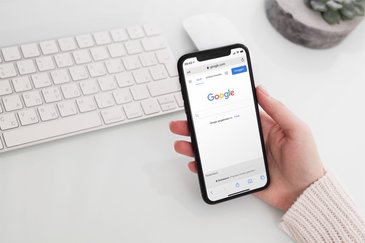
Reacties: 4 reacties